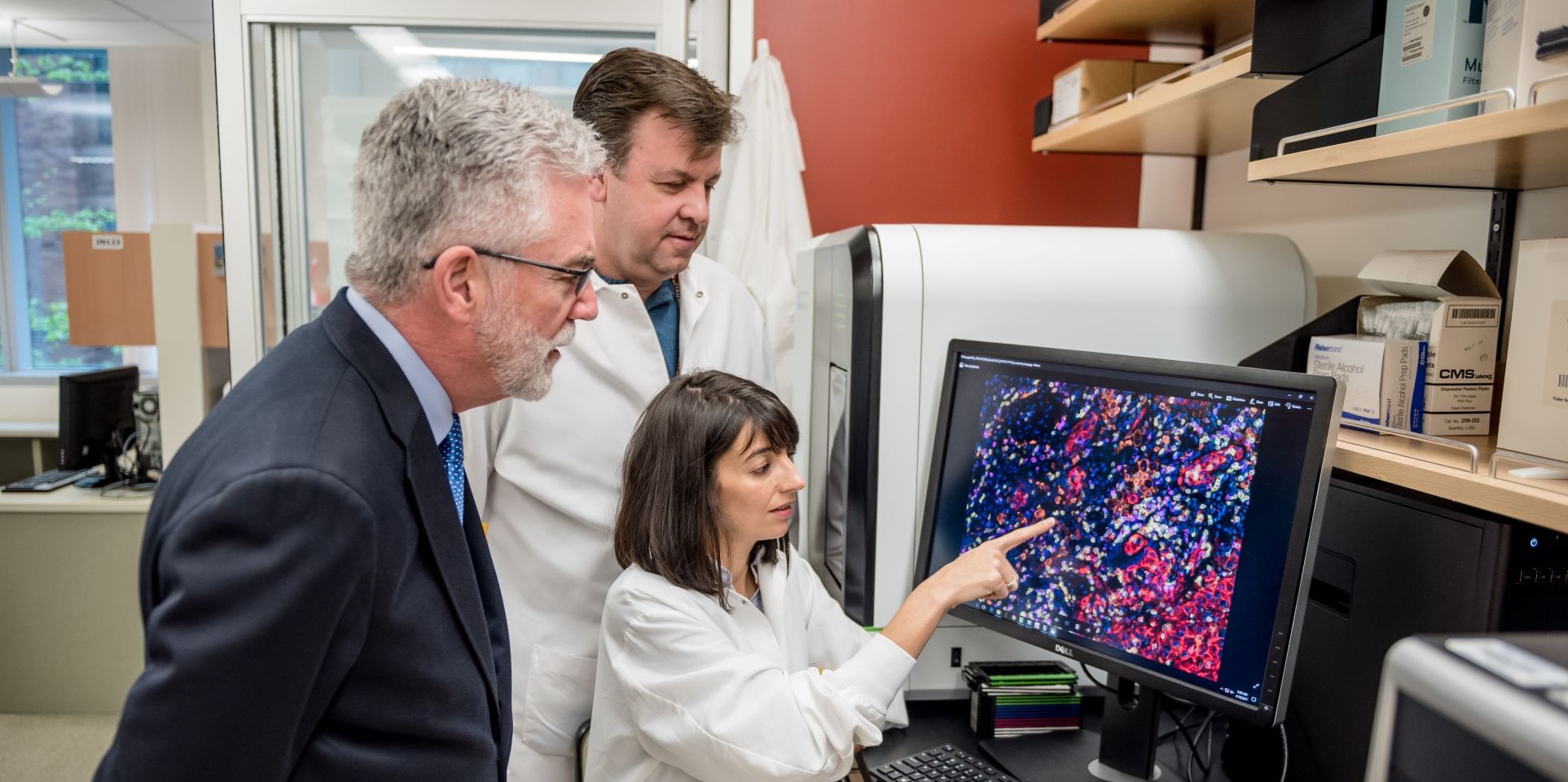The curriculum of the Advanced GI – Foregut Surgical Fellowship Program
is designed to provide fellows with an immersion in the study and practice
of diseases of the GI tract and abdominal cavity such that knowledge and
skill-based confidence will achieve expert status by the end of the experience.
Patient Care:
- Fellows will be expected to perform preoperative assessment of patients
and demonstrate an understanding of the management options, indications,
contraindications, and complications associated with the recommended procedure.
- Fellows should demonstrate understanding of and ability to order, integrate
and interpret perioperative testing and evaluation of all organ systems
as related to advanced GI surgery.
- Fellows will demonstrate intraoperative decision-making that minimizes
complications and demonstrates an awareness of the limitations of his/her
technical skills.
- Fellows will demonstrate knowledge of anatomy of the GI tract and the abdominal
cavity, including as viewed through MIS access, both normal and abnormal.
- Fellows will demonstrate knowledge of a variety of approaches (both operative
and non-operative) to a given GI tract disease and exhibit reasoning to
arrive at the correct procedure for a given patient.
- Fellows will demonstrate expertise in interpreting anatomic and physiologic
studies of the GI tract and abdominal cavity relevant to their areas of
expertise.
Fellows will demonstrate fundamental MIS competency relevant to their area
of expertise. These would include some or all of the following:
Basic Skills:
- Preoperative preparation (positioning, knowledge of necessary equipment,
bowel prep); evaluations of cardiopulmonary system, age, body habitus
- Exposure
- Retraction
- Tissue handling
- Camera navigation
- Two-handed manipulation
- Port-site placement
- Alternative access techniques
- Use of angled scopes
- FLS completion
- Vascular control and algorithm for control of bleeding
- Knot-tying ability, both hands, intracorporeal and extracorporeal
- Decision to convert a laparoscopic procedure to an open operation
Advanced Skills:
- Intraoperative ultrasound
- Suturing
- Stapling
- Intracorporeal anastomosis
- Adhesiolysis
- Running of bowel
- Demonstrates knowledge of energy sources
- Placement and fixation of prosthetic material
Fellows will acquire skill in diagnostic flexible endoscopy relevant to
their area of expertise.
Medical Knowledge:
- Fellows will be expected to demonstrate understanding of the anatomy, physiology
and pathologic conditions of the entire GI tract, abdominal cavity, abdominal
wall, and solid organs in the abdominal cavity and retroperitoneum.
- Fellows will demonstrate an understanding of the surgical and nonsurgical
options for managing pathologic conditions of the entire GI tract, abdominal
cavity, abdominal wall, and solid organs in the abdominal cavity and retroperitoneum.
- Fellows are expected to be able to appropriately order, read, and interpret
diagnostic tests and images.
- Fellows are expected to have basic FLS certification; to have knowledge
of two or more journals delving into Advanced GI Tract Surgery and MIS
The specific medical knowledge expectations appear in the curricula of
the specific subspecialty fellowships in advanced gastrointestinal surgery.
Research
Protected research time is provided to allow fellows to take advantage
of the ample research opportunities available to them within our larger
research program. Fellows work alongside well-established postdoctoral
investigators and other research fellows and are actively involved in
research. Fellows are expected to initiate clinical research protocols
with the goal of producing data that will be published in respected peer-reviewed
journals and presented at national/international meetings.

